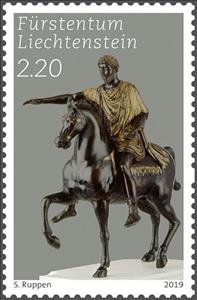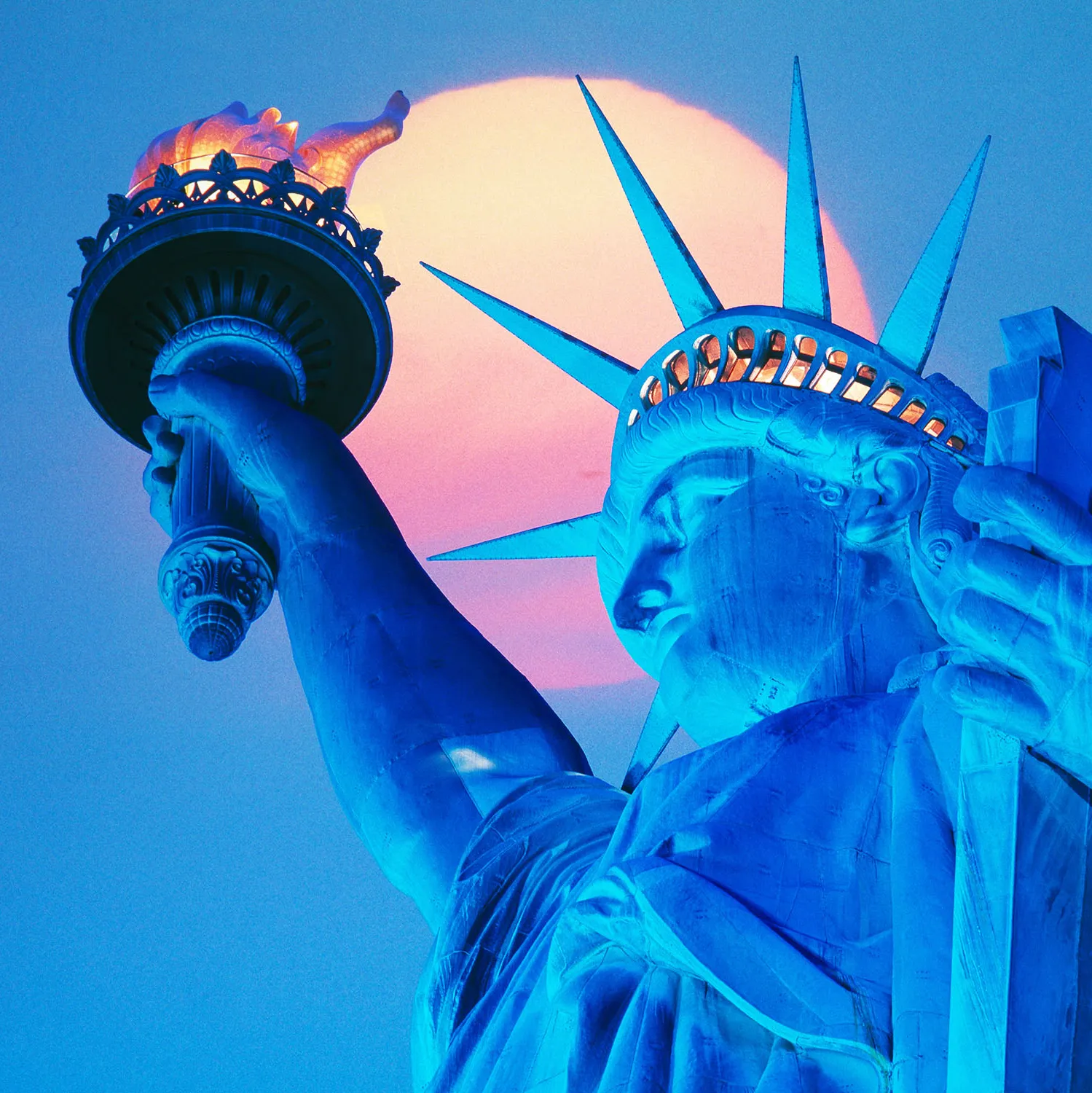Stamp: Equestrian Statue of Marcus Aurelius by Antico (Liechtenstein 2019)
Equestrian Statue of Marcus Aurelius by Antico (Liechtenstein 2019)
02 September (Liechtenstein ) within release Princely Treasures goes into circulation Stamp Equestrian Statue of Marcus Aurelius by Antico face value 2.20 Swiss franc
| Stamp Equestrian Statue of Marcus Aurelius by Antico in catalogues | |
|---|---|
| Michel: | Mi: LI 1956 |
| Zumstein: | Zum: LI 1915 |
Stamp is vertical format.
Also in the issue Princely Treasures:
- Stamp - Hercules with Lion Skin by Antico face value 1.70;
- Stamp - Equestrian Statue of Marcus Aurelius by Antico face value 2.20;
- Stamp - Bust of A Young Man by Antico face value 1.40;
- Full Pane - Bust of A Young Man by Antico face value 9*1.40;
- Full Pane - Equestrian Statue of Marcus Aurelius by Antico face value 9*1.70;
- Full Pane - Hercules with Lion Skin by Antico face value 9*1.70;
Stamp Equestrian Statue of Marcus Aurelius by Antico it reflects the thematic directions:
The horse (Equus ferus caballus) is one of two extant subspecies of Equus ferus. It is an odd-toed ungulate mammal belonging to the taxonomic family Equidae. The horse has evolved over the past 45 to 55 million years from a small multi-toed creature, Eohippus, into the large, single-toed animal of today. Humans began to domesticate horses around 4000 BC, and their domestication is believed to have been widespread by 3000 BC. Horses in the subspecies caballus are domesticated, although some domesticated populations live in the wild as feral horses. These feral populations are not true wild horses, as this term is used to describe horses that have never been domesticated, such as the endangered Przewalski's horse, a separate subspecies, and the only remaining true wild horse. There is an extensive, specialized vocabulary used to describe equine-related concepts, covering everything from anatomy to life stages, size, colors, markings, breeds, locomotion, and behavior.
A statue is a free-standing sculpture in which the realistic, full-length figures of persons or animals are carved or cast in a durable material such as wood, metal or stone. Typical statues are life-sized or close to life-size. A sculpture that represents persons or animals in full figure, but that is small enough to lift and carry is a statuette or figurine, whilst those that are more than twice life-size are regarded as colossal statues.


